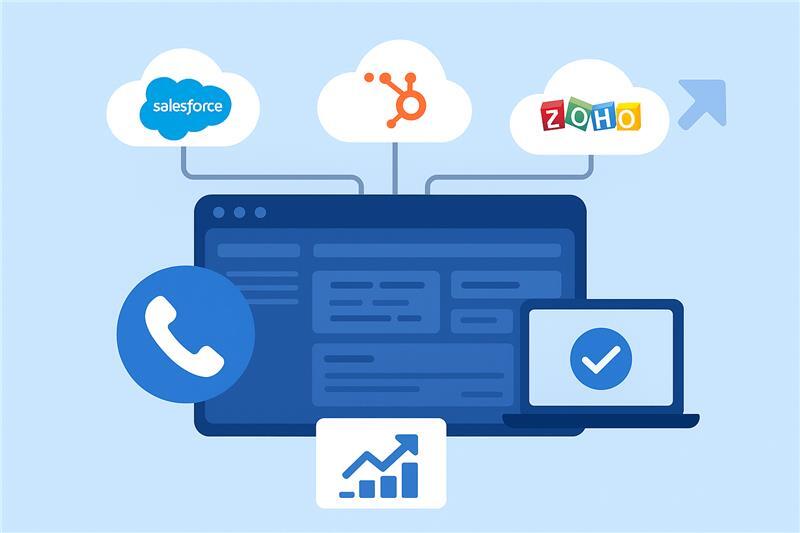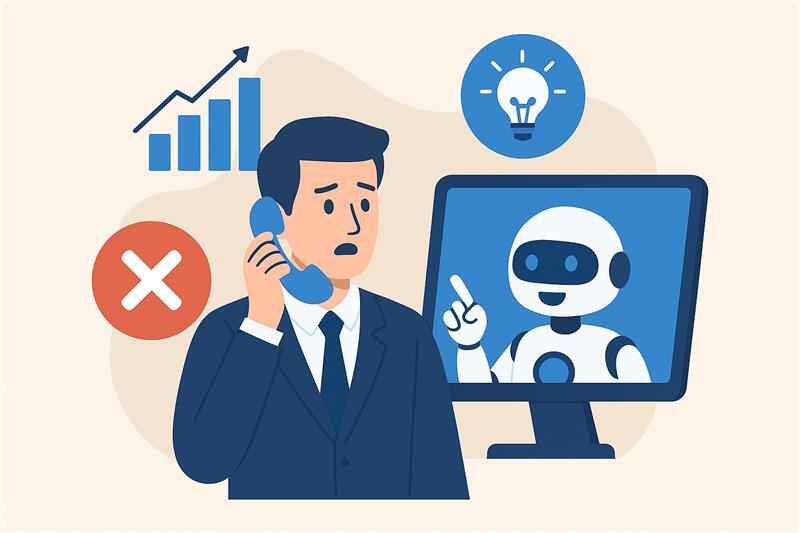
How To be a Successful B2B Sales Representative: A B2B Sales Rep Success Guide
Who is a B2B Sales Representative?
B2B sales representatives play a different role than B2C sales representatives. B2C sales reps generally follow the organisational sales playbook to align with the sales processes, search for prospects’ backgrounds, and pitch solutions that address potential customers’ challenges.
B2B sales reps are responsible for building and nurturing connections with corporate decision-makers to sell various products and services. They do so through channels like sales calls, video conferencing and emails.
Why are B2B sales “complex sales?”
Business-to-business sales is all about selling products and services to other businesses instead of directly selling to customers. B2B sales is different from B2C sales as the sales cycle is longer, involves multiple touchpoints, and decision-makers, and the product being sold tends to be of higher value. As a result, one may need up to 3 months or longer to close a B2B sales deal.
Since B2B sales involves multiple decision-makers, each with their unique needs, the reps must handle every key stakeholder objection and allay their concerns to close the deal. Hence the term "complex sale" is associated with B2B sales.
For example, suppose a B2B sales development representative is selling project management software to the C-suite of a company. Different stakeholders in the prospects’ buying team (for example, the technology team, finance team, etc.) have different requirements and concerns regarding the software.
For instance, the finance team may care about budget-friendly pricing. The integration team may ask questions about the various channel or platform integrations. The project team may want to know if it accommodates up to 100 users.
In such a situation, B2B sales representatives can successfully close the deal by building a package that matches the diverse requirements of various stakeholders. To do that, the sales representatives should have a clear idea of the key decision-makers and their requirements.
The Role of a B2B Sales Representative
Business-to-business sales representatives are responsible for end-to-end management of B2B sales funnel, starting from lead generation to lead conversion. Some of the major responsibilities associated with B2B sales representatives include:
- Researching the target industry to discover prospecting opportunities
- Planning and executing cold outreach in the form of emails and calls to attract new leads
- Reaching out to prospects through calls or emails to assess their needs
- Nurturing the leads and understanding their issues inside out
- Conducting product demos and handling questions, rejections, objections
- Relationship management with multiple decision-makers and stakeholders to add value
- Negotiating and closing multiple sales deals to achieve high revenue
- Managing all B2B selling operations and activities within a particular territory or zone or industry
An Overview of the B2B Sales Process in 6 Steps

Here is a quick overview of the B2B sales process that B2B sales representatives follow:
1. Research
The first step of the B2B sales and marketing cycle is research. B2B reps conduct a thorough investigation into the businesses that are most likely to benefit from the products and services, the demographics of the target prospects and the best ways to reach them. They must detect the key decision-maker in an organisation and connect with them directly. To learn this information, B2B reps explore multiple platforms like social media, websites, news portals, review portals, etc.
2. Prospecting
Prospecting is related to sending a cold email or making a cold call to prospective customers and building their interest. This stage helps them gain an idea about the readiness of the prospect to purchase the product or service.
3. Discovery
In this stage, one performs a quick need assessment to identify the product-prospect fit. Some common areas to focus on in the discovery call include the prospect’s current issues, business objectives and budget. Once everyone has clear information on these aspects, suitable outreach strategies can be developed.
4. Sales Pitch and Demo
Once the needs of the prospect have been identified, the reps pitch the product. The sales representative is well aware of the prospect's challenges, and the pitch should proactively address the key needs and concerns of the prospects.
Prospects raise multiple objections in this stage. The more complex the solution, the more objections multiple stakeholders raise. But with proper preparation, reps can handle the objections and move the deal to the next stages.
Want to tackle objections like a pro? Check out how Salesken's real-time assistance can help with objection handling and closing the sale.
5. Negotiation
B2B selling is a prolonged, complex process. The sales reps need to negotiate with the corporate buyers a few times before closing deals. These requests can be related to pricing, features, implementation, and so on. The sales rep needs to negotiate all the terms and conditions correctly with the prospects to freeze the final deal.
6. Conversion
In the B2B sales process, conversion is crucial. Many prospective B2B sales deals don’t convert into paid deals at this stage even after significant progress. The ones that do convert offer disproportionate returns on the overall effort. Therefore, planning and executing a smooth customer onboarding is mandatory in this stage.
10 Traits of Successful B2B Sales Representatives

The job of B2B sales representatives is challenging. Successful corporate sales representatives should possess and acquire the following sales skills to convert the challenges of B2B sales into opportunities:
1. Emotional Intelligence (EQ)
Empathy is the #1 sales skill. It is a must for the B2B sales representatives to create a rapport with the corporate buyers, identify their needs and concerns, and offer suitable solutions. B2B reps with remarkable EQ don’t hesitate to admit if their products are not the perfect fit for the buyers. Addressing potential customers’ pain points is the top priority in B2B sales.
2. Active listening
Active listening is an underrated professional skill. The sales rep must hear the prospect out before formulating their pitch. Remember, when you listen to the prospective customer, you hear their specific challenges, you can establish a genuine rapport, earn their trust and then provide the best solutions.
3. Persistence
Corporate sales representatives are bound to face rejection and hear the word “no” a lot. Therefore, developing persistence skills is a must for sales reps. This trait helps the reps to remain motivated even after facing rejections. By being persistent, sales reps can stay objective, not personalise the rejection, and use the feedback to improve their outreach activities.
4. Time management
Sales reps are responsible for multiple activities like research, cold outreach, discovery calls, demo calls, and so on. Efficient time management is key to balancing all these tasks simultaneously and prioritising better.
5. Research Skills

Research is a major part of B2B selling and customer acquisition. A professional involved in selling should possess in-depth analytical skills to collect sufficient information about a business, its key stakeholders, its competitive positioning, and the current pain points they are facing.
6. Negotiation
Sales negotiation is not just about the discussion over the price but is a continuous affair starting from need identification, objection handling, finding solutions, and price discussions. Often, sales reps assume good negotiation is all about making the prospect accept their view. But, good negotiation is often about finding the middle ground and a solution acceptable to all the key stakeholders. Reps need to possess negotiation skills to ensure they can build genuine rapport with the prospects and win more deals.
7. Technical skills
Sales reps don’t need to be tech experts, but basic technical skills are a must to win deals. Buyers would never prefer to purchase from a rep who is unable to answer basic technical queries about the product. It is thus important for the reps to know what technology the product uses, data security, integrations, and other information to gain the trust of the prospect.
8. Networking

Sales reps should be able to create genuine rapport and be able to network with a wide variety of people. With strong networking skills, businesses can generate new leads, nurture relationships and create unlimited customer acquisition opportunities for their brand.
9. Honesty
Sales reps must never mislead the prospect. Falsifying information or providing the prospect with incomplete information may move the deal down the funnel, but sooner or later, the prospect will figure it out and it will end up damaging the organisation's reputation in the market. It is always better to be honest, and upfront with the prospect about the product capabilities. If one is unable to answer a prospect's query, it is always better to accept it and get back to them later or seek help from others and provide the correct response to the prospect.
10. Social selling skills
In modern sales, social media has become a dominant mode of selling, and reps must be able to leverage social media channels to nurture and convert leads. With social listening tools like Hootsuite and others, reps can now know who their ICPs are, what they are searching for, and their key needs and concerns. Reps with an active social media presence can then use the channels to educate the buyers about their product to their target customers. Also, social media can be a great way to network and create brand awareness.
Coach your reps to success with Salesken's real-time assistance
Want to coach your reps to be more successful? Want to reduce rep onboarding time, shorten the sales cycle and improve buyer experience? Try Salesken. With Salesken's Conversation Intelligence capabilities, you can coach your reps in real-time!
- Assist your reps in real-time to adopt successful sales behavior behaviour
- Use call analytics to identify gaps in sales reps' performance and provide personalised coaching
- Figure out major talking points in calls and consolidate all call notes in a single place
Frequently Asked Questions (FAQ)
1. What do corporate sales representatives do?
The primary goal of corporate sales representatives is to interact with prospects, develop their interest by nurturing relationships, and solve their problems with personalised solutions.
2. What skills should a B2B sales rep possess?
A B2B sales rep should possess the following skills for a successful career:
- Emotional intelligence
- Active listening
- Time management
- Persistence
- Negotiation
- Networking
- Honesty
- Social Selling

.png)

